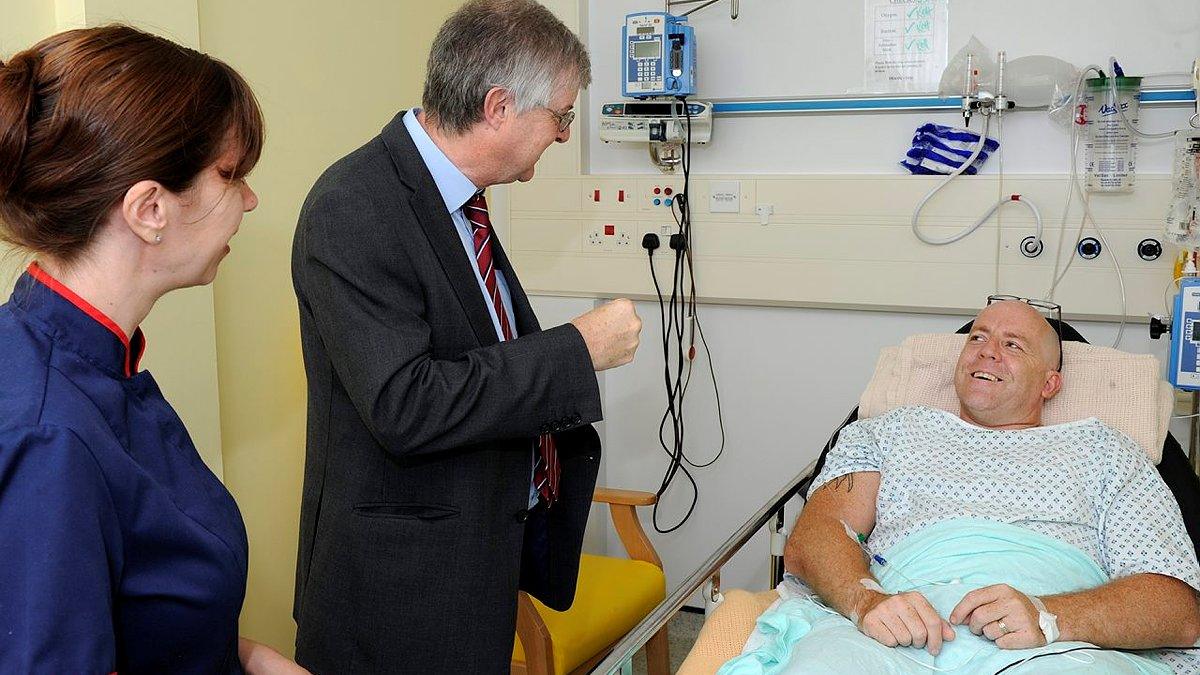Bullying of hospital's emergency staff 'endemic'
- Published
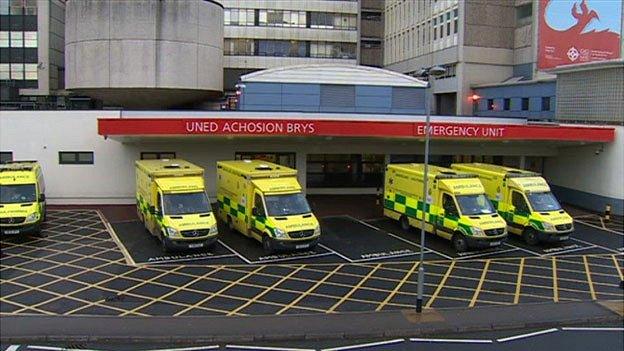
The emergency unit is Wales' biggest and sees 131,000 patients a year
The emergency unit at Wales' biggest hospital has a "culture of bullying, harassment and inappropriate behaviour", an inquiry has found.
A damning independent report, external said the issues at University Hospital of Wales, Cardiff, affect staff at all levels.
It also found "authoritarian" managers and a "significant risk of harm to patients" in how the unit was run.
Cardiff and Vale health board said it fully accepted the findings and recommendations.
It has set up an action group of staff, unions and managers to respond to the 46 points in the report.
The three-month inquiry - which also included the assessment unit at Llandough Hospital and minor injuries unit at Barry in the Vale of Glamorgan - was launched by the health board.
Health board chief executive Adam Cairns and Unison's Mike Jones on lessons from the report

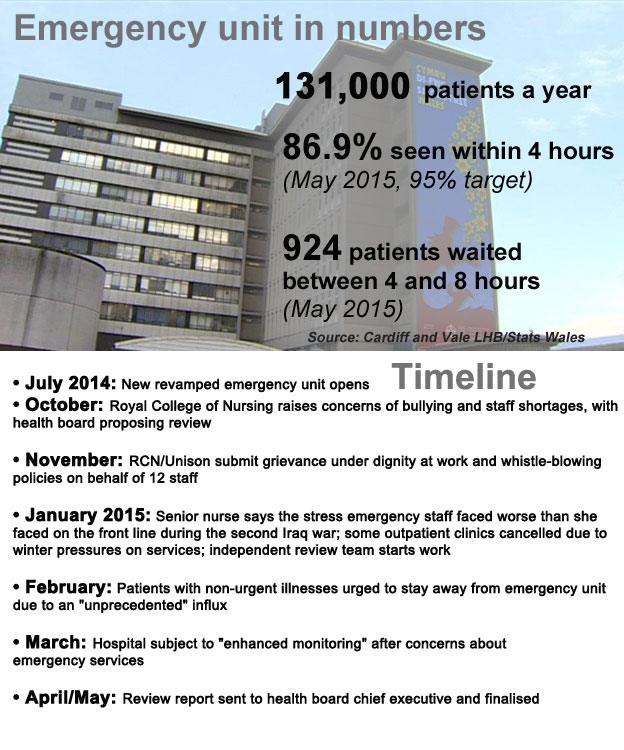

It followed claims of bullying, staff shortages and targets taking priority over patient care in the unit, which employs nearly 400 staff.
Unions started a collective grievance procedure last autumn on behalf of 12 staff.
The situation also led to one senior nurse likening the pressures staff were under to being in a war zone in Iraq.
The review found no direct evidence of a patient coming to harm but said there was "ongoing significant risk of harm to patients based on the current arrangement of care".

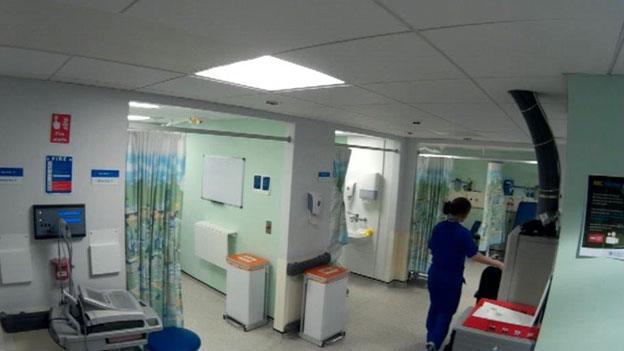
Consultants and senior nurses were 'disempowered' and did not consistently take responsibility for managing staff
Main findings involving staff:
Clear evidence of a culture of bullying, harassment and inappropriate behaviour and treatment which pervades all levels of staff in the emergency unit
Emotional distress experienced on a regular basis and that at times of extreme pressure staff miss breaks and work exceptionally long hours to ensure patient care is not compromised
Authoritarian command and control management; confusion about who was ultimately in charge
Disproportionate pressure put on staff to deliver targets; they feel "hopeless" about the situation improving
They do not feel cared for or respected by the management team
They were unable to take annual leave due to organisational pressures or sick leave which was "unfair and potentially a breach of contract"
Shifts regularly short staffed and a high sickness rate
High level of distrust between managers and union representatives

Staff were interviewed, seen in groups and surveyed.
The names of individuals commonly mentioned involving inappropriate behaviour have been removed from the report but the authors said "behaviours are endemic and involve many individuals and this makes it difficult to identify individual perpetrators".
The way the department was run meant patients were "regularly receiving less than optimum levels of care and experience".

RCN Wales director Tina Donnelly said nursing staff called in unions to help
Problems involving patient care:
Some patients experienced very long periods waiting to be offloaded from ambulances and get "less than optimum levels of care"
Patients spend long periods in overcrowded and unsuitable environments with associated poor patient experience
There were "inconsistencies" in how emergency patients with similar levels of urgency are dealt with, depending on whether they arrive by ambulance or get there themselves
Hospital beds became available too late in the day for patients to be admitted in a timely way and there were insufficient discharges, leading to overcrowding and the subsequent increase in clinical risk to patients
Delayed transfers of care - a patient ready to be discharged to care in the community - were "exceptionally high" and contributed to the poor flow and delays in admission
At times there was "significant pressure" exerted on staff by managers to move patients in order to offload ambulance patients

However, the inquiry found a "huge commitment" by staff, trying to do their best for patients.
Health board chief executive Prof Adam Cairns said: "The report is hard-hitting and as such should encourage everyone to understand that we have an unrelenting focus on facing our challenges head on.
"We will now focus on our response, working together in partnership with our staff and their representatives, mindful that this band of dedicated and passionate staff must be supported, always remembering that it is they who are there for us when we are most in need."
The director of the Royal College of Nursing in Wales, Tina Donnelly, said there was a "sense of relief" for her members.
Meanwhile, Unison branch secretary Mike Jones said he had not heard of any example of a member of staff who had been suspended for raising their concerns.
Patient watchdog Cardiff Community Health Council (CHC) said it has sought reassurances from the health board that staffing of the emergency unit will be addressed "as soon as practicable".
The CHC's chief officer Stephen Allen said the issues of staff shortages and external pressures could lead to patient care "not being delivered in the most appropriate way or location."

Back in January, lead nurse for emergency medicine Sharon O'Brien spoke to health correspondent Owain Clarke
Analysis by Owain Clarke, BBC Wales health correspondent
Nobody would deny they have incredibly stressful jobs.
But this report paints a picture of almost intolerable pressure faced by those working on the hospital's front-line
The demands on staff were often unreasonable, with almost all areas understaffed. Many said they felt hopeless - some claimed bosses did not care.
The report also found clear evidence of bullying and harassment - a dysfunctional culture so endemic the authors found it difficult to pinpoint blame.
Management failings meant senior nurses, even consultants, felt they did not have a say and there was little opportunity to learn from mistakes. The relationship between the unions and management had, it seems, hit rock bottom.
Although the authors found no evidence that patients were harmed - they say the failings were so serious there was a real risk it could have happened.
There are even accounts of patients with similar illnesses being treated differently depending on how they arrived at the hospital.
The quality and safety of the care given by some specialist nurses, it says, was not checked.
One key recommendation is that more doctors and nurses need to be recruited at once.
- Published18 March 2015
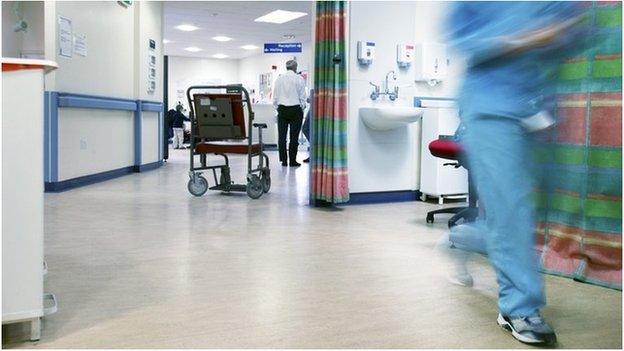
- Published13 January 2015
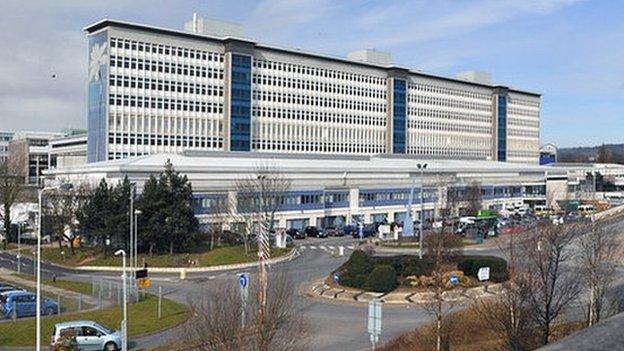
- Published13 January 2015
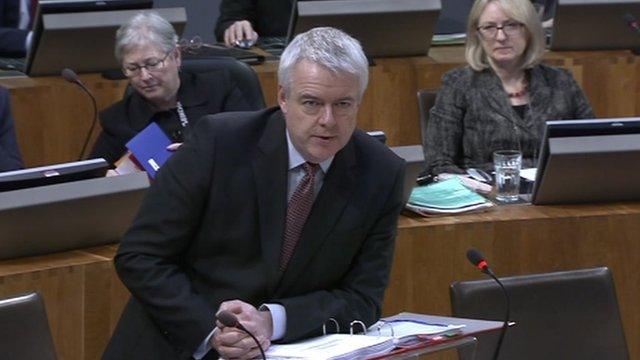
- Published26 January 2015
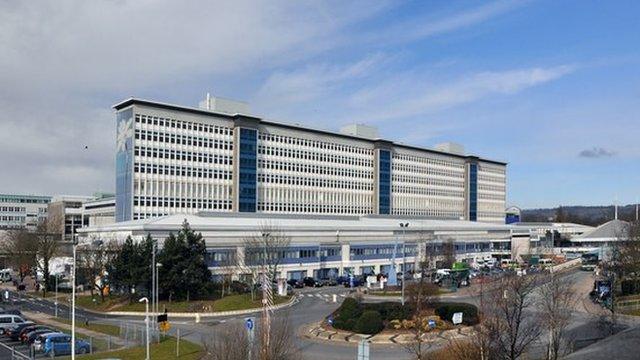
- Published3 February 2014
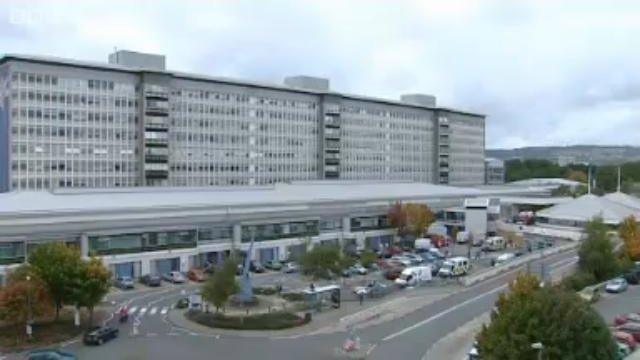
- Published25 July 2014
